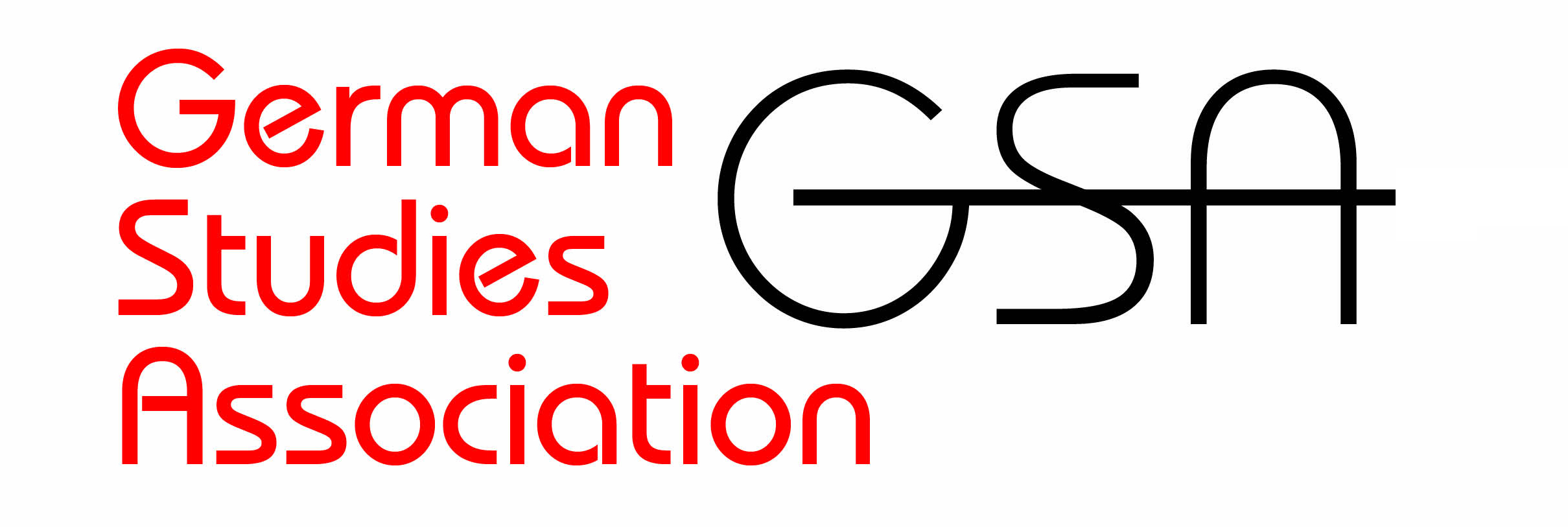In partnership with the German Studies Association (GSA), De GruyterBrill has instituted the “GSA-De Gruyter Dissertation Prize” to support German studies scholars at the early stages of their careers. De Gruyter wishes to award an annual cash prize of $1000 for the best recent (last two calendar years) unpublished dissertation, with the first award taking place in 2026. Winning manuscripts may be published in an appropriate De Gruyter book series or, if no appropriate series exists, as stand-alone titles. If the winner chooses to publish in immediate open access, De Gruyter will waive the open access fee for this title.
Dissertations should be focused on the complex relationships between German and German-speaking societies of the past, present, and future and the nations and cultures with which they intersect and interact. As an interdisciplinary network, the GSA supports creative and academic work in various social, institutional, and disciplinary contexts, including (but not limited to) anthropology, art, cultural studies, economics, environmental studies, history, literature, media studies, music, theater, political science, and sociology. As it is difficult to delineate the boundaries of the field accurately, the Prize Committee will make the final decision on whether submissions are of sufficient relevance and academic merit.
The Selection and Review Process and Schedule:
- The prize will be announced during the annual banquet and subsequently via the GSA website, social media channels, and newsletter.
- Submissions are received and processed by the GSA Operations Director and should be sent to: prizes@thegsa.org with a subject line that clearly identifies the submission.
- Submissions are distributed by the Committee Chair among Committee members according to their areas of expertise.
- The Committee produces a shortlist of a small number of submissions (approximately 7-8), primarily on the basis of applicant statements and supporting statements, and proposes one reviewer for each. If required, the Committee should meet to produce the shortlist.
- Once all reviews have been received, the Committee will meet, either in person or via zoom/teams, to discuss the reports, and will be joined by a representative of De Gruyter. The scores provided by reviewers will be treated as indicative markers, and will not of themselves determine the relative ranking of submissions or the final outcome. Committee members may need to undertake a further substantive assessment of some submissions before the meeting. A final decision will then be made by the Committee (suggested deadline of August 1).
- Winning applicants will then be notified by the GSA President. The Executive Director will then correspond with the winners to see if they will be attending the next GSA conference. If so, their win will be announced publicly during the annual banquet and their names included in the banquet program.
- In recognition of their contribution to the process, all committee members will receive a free copy of the winning manuscript (upon publication) as well as a free copy of any De Gruyter Brill book of their choice, plus the standard De Gruyter author discount of 30% on all titles purchased from De Gruyter during the time they serve on the committee.
Rules and Regulations:
- To be eligible, a submission must be a doctoral thesis. The thesis must have been completed, successfully defended, and accepted within the last two calendar years from the submission deadline. The thesis must have been submitted as part of the requirements for a doctoral degree at any university in the world.
- The subject(s) covered by the submission should fall within the remit of GSA. The Prize Committee will make the final decision on whether submissions are of sufficient relevance.
- De Gruyter will extend an offer to the winner to publish the award-winning dissertation after it has been revised into a publishable book manuscript, upon acceptance by De Gruyter, at the sole discretion of De Gruyter. The winner may choose to decline this offer.
- An annual award ceremony will be organized at the GSA Annual Conference.
- The GSA-De Gruyter Prize is open to GSA members from any country. There is no age limit.
- Submissions are accepted in English only, and must adhere to internationally recognized standards and conventions of academic writing, including of transliteration. Entries must include:
- (a) A brief covering letter stating (i) the applicant’s name, (ii) contact details and (iii) GSA membership number, (iv) the dates of the defense and acceptance of the thesis at the awarding institution, and (v) the name(s) and contact details of the supervisor(s).
- (b) The manuscript. The minimum preferred word limit is 80,000 words. There is no maximum limit.
- (c) The applicant’s curriculum vitae of a maximum of 2 pages.
- (d) A statement, of a maximum of 750 words, summarizing the submission and highlighting its originality and contribution to the field.
- (e) A scanned copy of the formal confirmation of the completion, successful defense and acceptance of the doctoral thesis from the awarding institution. If in doubt about the nature of this document, please inquire at your institution.
Items a.-d. should be in PDF format. All files must contain the applicant’s surname in the file name. Documents must be submitted in one email to prizes@thegsa.com by 5.00 pm GMT, November 1* in any given calendar year in order to be considered for the prize to be awarded in the following calendar year (i.e., 1 November 2025 for the award given in September 2026, etc.).
The applicant should also arrange for the supervisor or another academic who is more senior than the applicant and is familiar with the submission to submit a supporting statement that highlights its contributions to the field. This should be submitted by the supervisor or senior academic confidentially and directly to prizes@thegsa.com by 5.00 pm GMT, 15 November*, in the same year the dissertation is submitted. The full name of the applicant should be stated in the title and subject line of the email.
*Please note that the 2025 deadline has been extended to December 31, 2025.

